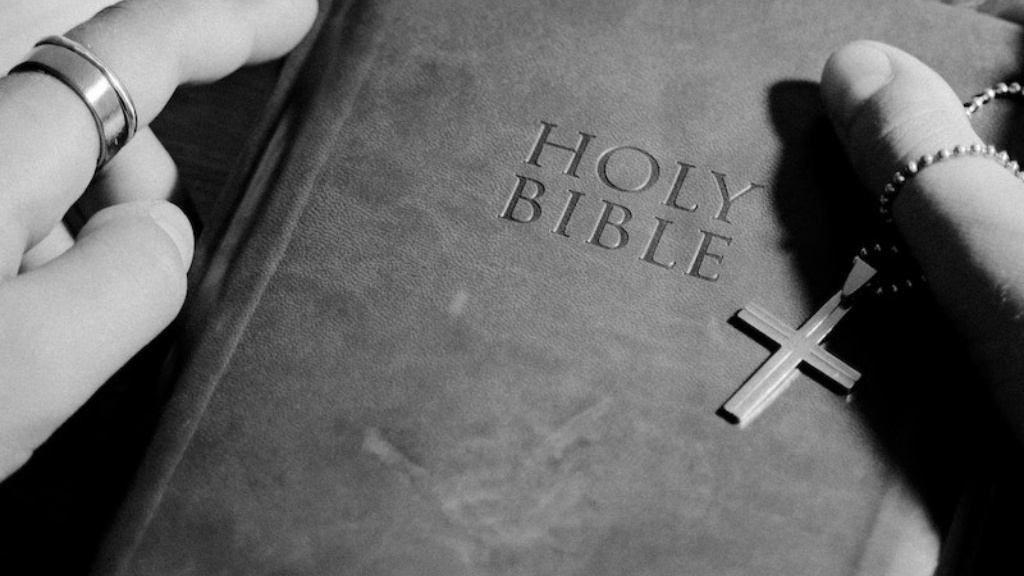The Book of Enoch pre-dates Christianity and is referred to in the Bible in both the New and Old Testament. It’s a book of Jewish eschatology which tells the story of an antediluvian Patriach named Enoch and his experiences with God, angels and other supernatural beings. Despite its frequent references in the Bible, however, the Book of Enoch is absent from both Protestant and Catholic versions of the Bible and is not considered to be a genuine part of biblical canon.
This has left many to wonder why the powerful, spiritual text was removed from the Bible; some have speculated it’s due to its frequent references to fallen angels and their role in bringing about the flood of Genesis. Others have argued that due to its discussion of a prophecy of a future, divine judgment it goes against the teachings of Christianity. Still, there are some scholars who believe that Enoch’s removal from the Bible is the result of Church authorities becoming uncomfortable with the book’s focus on personal holiness and its description of God’s direct communication with people.
“Enoch offers a different view of religion which was at odds with the established teachings of Christianity,” says Professor Lawrence Myers of Cambridge University. “The Church wanted a single uniform message and Enoch’s focus on personal holiness and his focus on direct communication with the Almighty challenged that.”
Indeed, Enoch’s book is often seen as challenging both traditional notions of faith and religion. For example, Enoch argued that judgment for evil did not come from a distant God, but from a God who is actively involved and accessible to all people. This challenged the notion that God was both remote and unapproachable.
Scholars have also suggested that Enoch was removed from the Bible due to its focus on the existence of other spiritual beings. “The book was seen as heretical in many regards by the Church authorities,” says Professor Myers, “it’s almost a perfect precursor to the teaching of Gnosticism which had become popular in the early days of Christianity.”
The episode of Enoch’s removal from the Bible still raises questions even today. “All of us must decide how we feel — and what we believe — about Enoch’s book,” suggests Professor Myers. “In the absence of any complete answers to why Enoch was removed, we must make up our own minds.”
The Historicity of Enoch
Though separated from the Bible, the historicity of the Biblical figure Enoch before and after his removal from the sacred texts is largely accepted by the majority of the faith. Archaeological evidence shows the extensive influence of the Patriarch amongst earlier believers, including references to him in several Dead Sea Scrolls and a Hebrew incantation bowl from the first century C.E.
Historical accounts attest to the existence of an Enoch figure throughout ancient cultures, including a book ascribed to him in some esoteric traditions, as well as references to him in the Apocrypha and even the Qur’an. Though there are some discrepancies across religious traditions, the majority of scholars agree that the basic premise of the Enoch narrative is true.
The concept of Enoch’s removal from the Bible affecting his legacy has been explored by religious and non-religious thinkers alike. Some have argued that Enoch, instead of being cut by Church authorities, was actually a conscious decision to leave out the text as part of a larger movement to unify the disparate faith.
Many scholars believe that the teachings of Enoch were in some ways too progressive for the time, so leaving them out was a way of preserving the consistency of the faith. Others point to archeological and textual evidence which shows that Church authorities were in fact, uncomfortable with the book’s content and simply excluded it, as a result.
Enoch and the Book of Genesis
Enoch, despite his removal from the Bible and the lack of agreement between religious denominations over his historicity, still represents a major fixture in the early passages of the Bible. His influence on the events in Genesis, the first part of the Bible, are often seen in tandem with the landmark events he foretells.
For a period in ancient times, Enoch’s prophecy was a major source of moral guidance and teachings, as well as a discussion of God’s ultimate justice. He is often seen as a thread running through the entirety of the Bible, tying together the narrative of Creation and the early stages of mankind’s relationship with their Creator.
Today, discussion of Enoch’s influence and moral teachings still remain contentious. However, scholarly research shows that Enoch’s voice and teachings were still a major part of the Bible’s contents. Though absent from modern Bible canonical editions, the sheer volume of textual, archeological and religious evidence show the persistency of his teachings throughout the pre-Christian world.
A Unique Historical Figure
The figure of Enoch is by and large a widely accepted one by the faithful and non-believers alike. His prominence in religious texts, archeological artifacts and literature shows a figure of great relevance to the religious movements that predate and succeeded him. He is perhaps unique in his status as a biblical figure in that all religions which embrace Old Testament scripture, discuss him in some form or fashion.
Enoch, despite Church efforts to downplay and discredit him, has become a major source of inspiration for generations of spiritual innovators and thinkers. Perhaps, it’s within this phenomenon that one can best understand his present day relevance and the reason why the narrative of Enoch’s tale continues to draw readers and believers alike.
The Influence of the Book of Enoch
Though removed from the Bible, the book of Enoch has had a major influence on religious thinking and philosophy in the Western world. Since its discovery in the 18th century in Ethiopia, the book has been lauded as a major source of spiritual understanding, leading to its acceptance and embrace by a wide range of spiritual readers.
The nature of Enoch’s teachings, some of which were seen as challenging religious authority, made it a popular source of inspiration and contemplation for a vast range of spiritual teachers and thinkers. From Jewish Kabbalists to Christian mystics, the book of Enoch has had a major role in the development and education of spiritual teachers across the ages.
The book is also seen as a source of major political and ethical understanding. Many believe that the teachings contained in the book are a major source of ethical guidance and morality in an increasingly globalized world. As such, the book of Enoch has remained a major source of inspiration for theology and religious studies across the faith.
Enoch’s Relevance Today
Though largely removed from the Bible, the figure of Enoch, and indeed, the text of the Book of Enoch remain as influential today as during the ancient times. Scholars note the growth of modern movements such as Gnosticism, which draw upon Enoch’s teachings towards individual holiness and communion with God.
Indeed, much of the primary themes of Enoch’s teachings remains relevant today. From its emphasis on moral justice to its exploration of an active and involved God, Enoch’s teachings continue to shape spiritual thought across the globe.
Meanwhile, his writings and the focus on direct communication to God still act as a source of inspiration for many believers. This is in spite of the fact that the Book of Enoch remains largely absent from the Bible, offering readers and believers alike a unique insight from which to approach their faith and explore more innovative concepts of spirituality.





